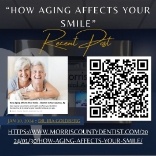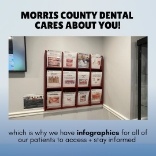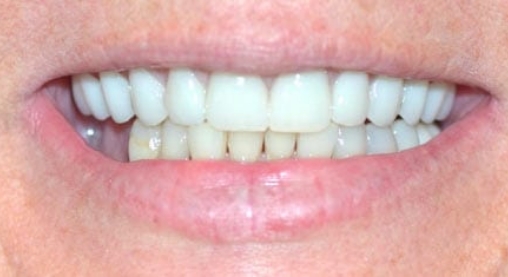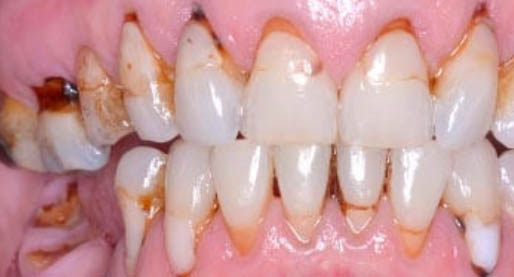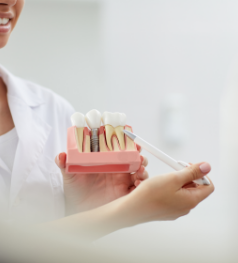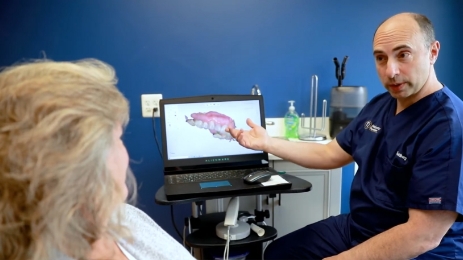
Welcome to Morris County Dental Associates
Patients Choose Us
Whether you require specialized dental implant care near Wharton or routine services, our Succasunna dentist and team have the expertise and compassion to make your experience positive and your results stunning.
 Dr. Ira Goldberg
Dr. Ira Goldberg
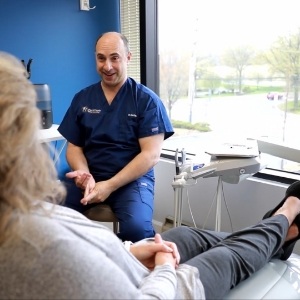
All Under
1 Roof
Here, you can receive basically all dental services, including implants, in one convenient office and with a team you trust.
Explore Our Services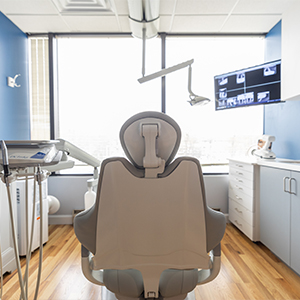
Flexible Hours
& Emergencies
Would you prefer to visit after work? Do you have an emergency after typical office hours? We are open late a couple of days a week!
Contact Us
In-House
Savings Plan
Don’t have dental insurance? We offer a cost-effective alternative that can keep your smile and your wallet happy and healthy.
See Plan DetailsSuccasunna's Trusted Dentist
Meet Dr. GoldbergWhen it comes to dental work, particularly implants, All-on-4, and other related procedures, Dr. Goldberg stands out as a true expert. In fact, in addition to his professional achievements, you may have seen Dr. Goldberg’s articles in Roxbury Life, where he regularly writes content to educate the community about oral health issues. During your appointment, you’re guaranteed to experience world-class dentistry near Mt. Olive, New Jersey!
Get to Know Dr. Goldberg




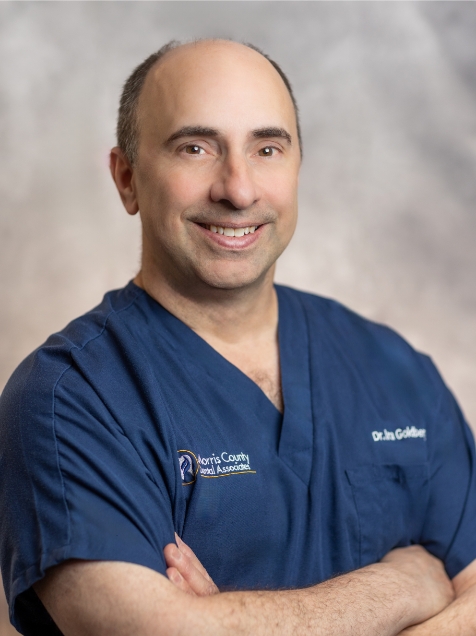 Dr. Ira Goldberg
Dr. Ira Goldberg
“Dr. Goldberg and his staff are extremely friendly, welcoming and caring. They take time to inquire about each patient's well-being and are truly interested in your life...”
Karen G.Comprehensive Dental Care
Achieve aLifetime of
Healthy Smiles
Even if all you need right now is typical dental work near Ledgewood, Roxbury Township, wouldn’t it be comforting to know your dentist can treat more advanced problems if they come up down the road? At Morris County Dental Associates, you can have this peace of mind.
Schedule Your First Visit Explore All Our Services
Dental Implants
Trusted Expert in Replacing Missing TeethWith his years of advanced training and clinical prowess, you can rest assured that Dr. Goldberg will deliver successful, flawless dental implants, restoring your functional smile as well as your confidence.
Learn More About Dental Implants
Dental Implant Testimonials
Watch More Testimonials
"Dr.Goldberg Gave me my smile back. I feel comfortable with my teeth and Gave me back my confidence. I got my smile back in just 2 visits. I would recommend Dr. Goldberg to anyone. Great facility and friendly staff."
"This whole experience was awesome! From my initial consult with Dr. Goldberg to the end of the process I could not be happier. I initially was concerned with whether I would need implants on both my upper jaw and lower, but Dr. Goldberg assured me that the uppers were all that needed to be done. Each appointment was smooth as could be, from the initial workup, through the surgery to the installation of my temporary implants. I had asked that I be finished for my daughter's wedding on October 5th. Dr. Goldberg assured me that as long as there were no complications, which there were not, I should be good to go. My whole process was completed 2 weeks before the wedding and to say the least I was overjoyed at the results! Excellent work, super staff and great doctor. I had the best smile for the most important day in my daughter's life, all thanks to the fine crew at Morris County Dental Associates. I was proud to have my picture taken with the beaming bride! Thanks Dr. Goldberg to you and your fabulous staff."
"Everyone in this practice is professional, knowledgeable, patient, and thorough. What a terrific experience!"
"Dr. Goldberg is the first dentist I have been comfortable with in 20 years. He is a wizard when it comes to alleviating pain and discomfort during any procedure.."
"Would definitely recommend Dr Goldberg and his staff. Dr Goldberg is very professional and detailed and delivers painless tooth extraction. My new bridge is beautiful."
Truly Transformed Smiles
& Changed LivesIn some cases, seeing is believing, and viewing before-and-after photos can give you a clearer idea of just how strong an impact our work can make.
View Our Smile GallerySpecial Offers
Conveniently Located
Near You
Located just southwest of NJ-10, our dental office near Randolph is neighboring Kohl’s, Fuddruckers, the UPS Store, and other shops in the Roxbury Mall on Commerce Blvd. If you need more detailed directions for finding Morris County Dental Associates, please feel free to give us a call.
Get Directions
